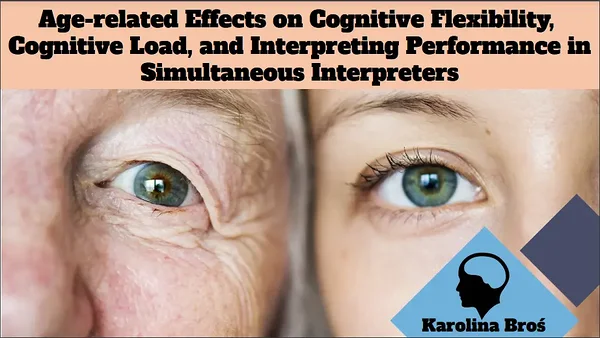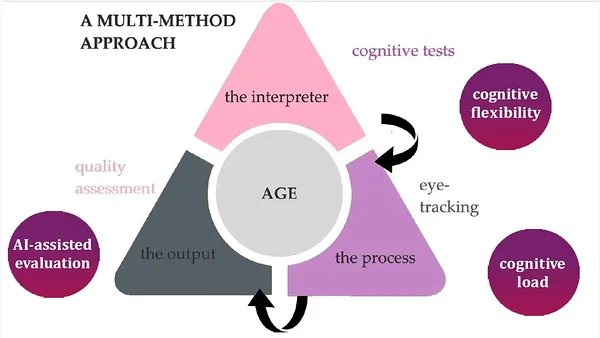Cognitive flexibility, cognitive load and interpreting performance
in simultaneous interpreters as a function of age
This project aims to study how interpreters' abilities change as they get older, particularly focusing on their cognitive flexibility. Interpreters are people who listen to one language and speak it in another language at the same time. This is a challenging task that requires a lot of mental effort. We want to see how aging affects interpreters' performance.
Imagine interpreters as skilled multitaskers who listen to someone speaking in one language and then instantly translate it into another language. As they do this, their brain's ability to switch between languages and adapt to different speakers, accents, and topics improves over time with practice. This experience might even help protect them from cognitive decline as they get older.
Despite knowing this, we haven't studied how age impacts interpreters' mental abilities and performance enough. Some research has been done through interviews, but we lack thorough studies that combine different types of data to get a complete picture.
So, we're stepping in to fill this gap. We'll test interpreters of different ages, from 30 to 70 years old, whose native language is Polish, English, or French. To understand their cognitive flexibility, we'll use a test called the Wisconsin card sorting task (WCST). This test measures how well they can adapt to changing situations. We'll also track their eye movements using eye-tracking glasses to see how their eyes react while they're interpreting.
During our study, we'll ask interpreters to listen to a recorded speech and interpret it. We'll introduce some manipulations in the recorded speech, like making the speech more dense and grammatically complex, faster or changing the speaker and accent. This will help us understand how interpreters handle different challenges. We'll pay attention to their eye movements and the size of their pupils to see how their brains respond to these changes. In addition to these tests, we'll also evaluate the interpreters' working memory and language skills. Finally, we'll use an AI tool such as chatGPT to assess how accurately they interpret the speech.
By doing all this, we hope to find out three things:
- How interpreters' brains react to different levels of difficulty in input speech as they age.
- How interpreters' ability to adapt and switch between languages changes as they age.
- How interpreters' accuracy in their interpreting changes with age.

